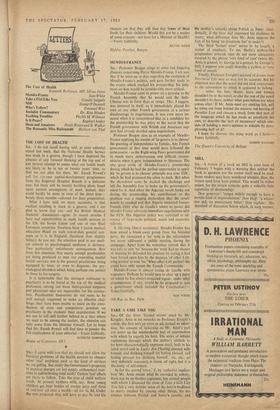That might seem to be a difficult retort to answer.
Yet I remain convinced that my distaste is something that the normal Lawrence, the creative Lawrence, would have shared and justi- fied; that (whether in his abnormal state he was aware of it or not) the will to write. those passages had had a resistance to overcome, and the price of the overcoming was the artist's intedrity in the profounder sense: the wholeness was violated. Lawrence would have had a resistance to over- come in himself uttering • the 'four-letter words'
with the ease and freedom with which the game- keeper and Tommy Dukes use them. In the way of those frequent and insistent offers to evoke sexual experience in pondered, dwelling im- mediacy there was a deep-seated pudeur, going back to a finely civilised upbringing in a Victorian working-class home. This pudeur became in the developed and mature Lawrence the exquisitely sensitive human delicacy of the great artist— something so patently manifested in his novels and tales that we don't need the extraneous evi- dence we have that he didn't like 'emancipation.'


































 Previous page
Previous page